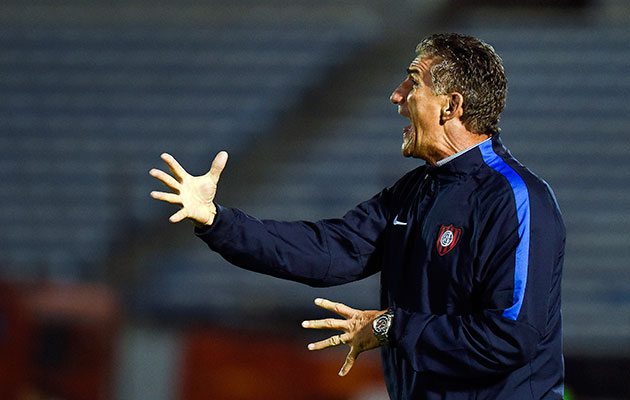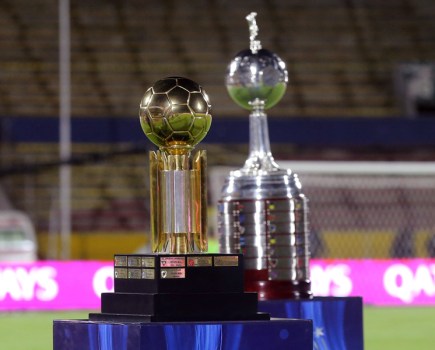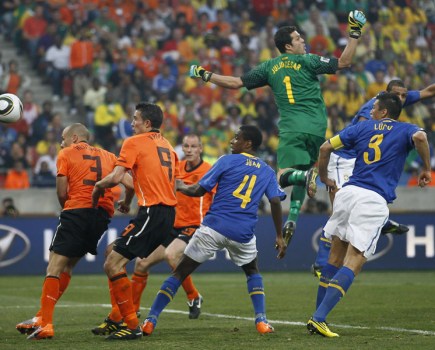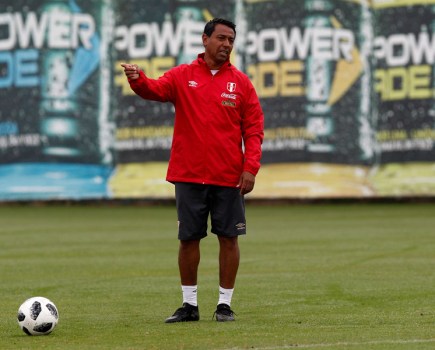With his retirement in December, the era of Rogerio Ceni at Sao Paulo has come to a close. And now the era of Edgardo Bauza has started.
There is, of course, no comparison. Ceni, the goalscoring goalkeeper, was at the club for 23 years. Bauza, the Argentine coach, will do very well to last two years. Indeed, he could even find himself under early pressure if things go wrong in the next two weeks.
His name is synonymous with the Copa Libertadores, South America’s Champions League. Bauza’s big breakthrough came when he took Rosario Central to the semi finals in 2001. Seven years later he won the title with LDU of Quito, still the only Ecuadorian club to be crowned champions, and three years ago he was on the podium once more with San Lorenzo. It is this track record that made him attractive to Sao Paulo, a club who have nurtured a special relationship with the Libertadores ever since the early 90s triumphs of the team coached by Tele Santana.
Bauza, then, has been brought in to take charge of Sao Paulo’s 2016 Libertadores campaign, which gets underway this Wednesday when they take on Universidad Cesar Vallejo of Peru in the first leg of the qualifying round.
This is a high risk home and away tie. Only once has a Brazilian side been beaten at this stage of the competition – 5 years ago when Corinthians went down to Tolima of Colombia, a defeat which ended the career of Ronaldo. On paper, Cesar Vallejo offer less of a threat – especially with the injury suffered by their star midfielder Rinaldo Cruzado. Even so, coach Franco Navarro has assembled an interesting group of players, most of whom have been together for a while, and Sao Paulo may not relish the trip to Trujillo, in the north of Peru – especially because an extra dose of unpredictability is added by the fact that these games come so early in the season.
Bauza’s side made their competitive debut on Saturday with a scratchy 1-1 draw away to Red Bull Brasil in the local state championship. It underlined the point that Bauza cannot be expected to be a miracle worker.
Last year was a traumatic time for Sao Paulo. A club once seen as a model of efficient administration was instead in the headlines for political in-fighting and financial problems. They qualified for the Libertadores almost by default, with Santos giving up on the league to concentrate (in vain) on winning the cup, and Internacional of Porto Alegre throwing away the final slot with some embarrassingly lazy performances.
Since then, of course, Sao Paulo have lost Rogerio Ceni to retirement. Former international centre forward Luis Fabiano has moved to China, and the loan spell of Alexandre Pato, last year’s top scorer, came to an end. He returned to Corinthians and has subsequently been loaned to Chelsea.
https://www.youtube.com/watch?v=dP4-_pLbpMk
Bauza, then, is being forced to ease his way into an unfamiliar country in tough circumstances. On Saturday’s evidence the defensive unit, a problem last year, will still give him headaches. Former Uruguayan captain Diego Lugano has been brought back to be the defensive leader. But he is not yet match fit, and anyway, at 35 his lack of pace will surely be a concern. Part of the problem against Red Bull was the space between the lines of the team – making it just as well for Sao Paulo that Cruzado is out of action with a knee injury, since his range of passing would open up the field for the Cesar Vallejo attackers. But the defence was also exposed because the team had such trouble retaining possession.
Bauza’s San Lorenzo side were strong in this area, with an experienced and able pair of central midfielders. Juan Mercier read the danger and kept things simple, while Nestor Ortigoza knitted the side together with his passing. Hudson and Thiago Mendes, Sao Paulo’s pair, have some talent but lack the same game smarts. And then there is playmaker Paulo Henrique Ganso, the one time great hope of Brazilian football.
Ganso scored Sao Paulo’s goal on Saturday – a near post header from a corner. He provided the occasional defence splitting pass. But so often he seems to be a player for moments, and not for matches. Can he take a match by the scruff of the neck and dictate its rhythm? Does he have the pass-and-move capacity to play this role? These are aspects of his game which, at 26, are still unproven. But if he can win the centre ground, then Sao Paulo should have the pace and fire to do serious damage down the flanks, get past Cesar Vallejo and give Edgardo Bauza some time to put together a side capable of challenging for the Libertadores title.







